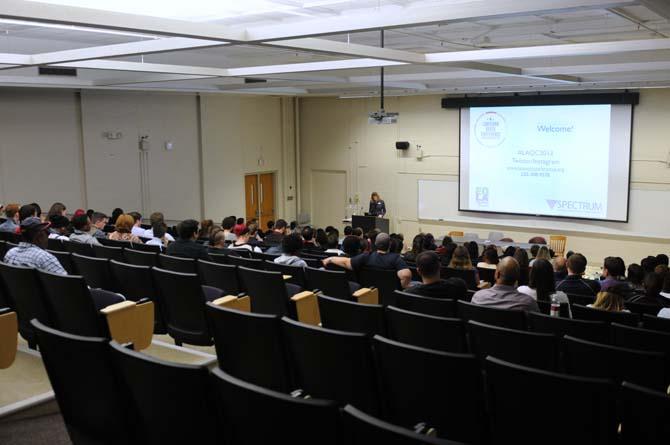Though it’s the 21st century, racism was still a factor of conversation during the State of the Movement Panel’s discussion at the Louisiana Queer Conference hosted by Spectrum.
That’s right, racism was still the No. 1 equality issue in Louisiana — at an LGBT conference. It’s a difficulty facing many members of the LGBT community who are also of historically oppressed races.
Tim West, president of Equality Louisiana and panel member, spoke up in response to a question about racism in the community, claiming he was “colorblind,” framing it in well-meaning words about humans being on the same playing field.
A man in the audience immediately corrected him, saying erasing race is almost as bad as being racist in the first place, in that no one would take into account another person’s background and potential racial struggles while interacting.
By stripping away race, you lose identity.
And not many play on the same field, even now.
When applying to college, there was that one guy milking his one-48th Native American heritage for a scholarship, and Caucasian males struggled to stand out from one another.
Because in our society, we still have the play between the privileged and not. To the privileged, it’s no one’s fault.
If you grew up in Louisiana, you grew up in a stratified society. No matter how many times your teachers played “Remember the Titans” during testing week, the white kids went home to white neighborhoods, and the black kids went home to black neighborhoods.
That’s just the way the world worked — and still does, to a point. No one asked to be born the race or class they are; arbitrary birth is not a good way to classify people, and complacency in the face of this is not a good way to promote true equality.
Yes, no one asked you to be born white and middle class or black and upper class or Hispanic and lower class.
No, that doesn’t mean you should accept it and move on.
That’s not how the world should work.
Race exists. The person sitting next to you doesn’t live the same life as you do, guaranteed. They could be bisexual, transgender, gay or straight and you wouldn’t know.
They could have a black father and an Indian mother, or their parents could be able to trace their blood back to Oklahoma for generations.
Instead of taking away race and history, we need to learn about others, promote a balance amongst all backgrounds regardless of skin tone, sexual orientation and everything else unfairly discriminated against.
The sooner we can foster a Southern society that doesn’t have a need to view everyone as a similar shade of gray, the better off we will be.
It’s a little sad we still need to have this conversation in 2013. Thank goodness the rest of the country is 20 or 30 years ahead of the South in terms of equality. All we have to do is catch up.
Here’s a fact: In 2004, Louisiana Gov. Kathleen Blanco banned discrimination based on sexual orientation for state employees.
In 2008, Gov. Bobby Jindal rescinded this order, ending that protection.
Members of the LGBT community can be fired for their natural state — fired from work not based on merit or work ethic, but because of the people they love.
Is this OK? Is this something Louisiana, an upstanding society full of wonderful people who make the best food in the nation, should condone?
Like it or not, silence allows this sort of action to continue.
So speak up. Attend the next Louisiana Queer Conference and participate in discussion. Learn about the community of which you are a part.
Sure, you may be a college student just passing through, but that doesn’t mean you can’t leave Louisiana a little better than when you came.
Megan Dunbar is a 19-year-old English junior from Greenville, S.C.





